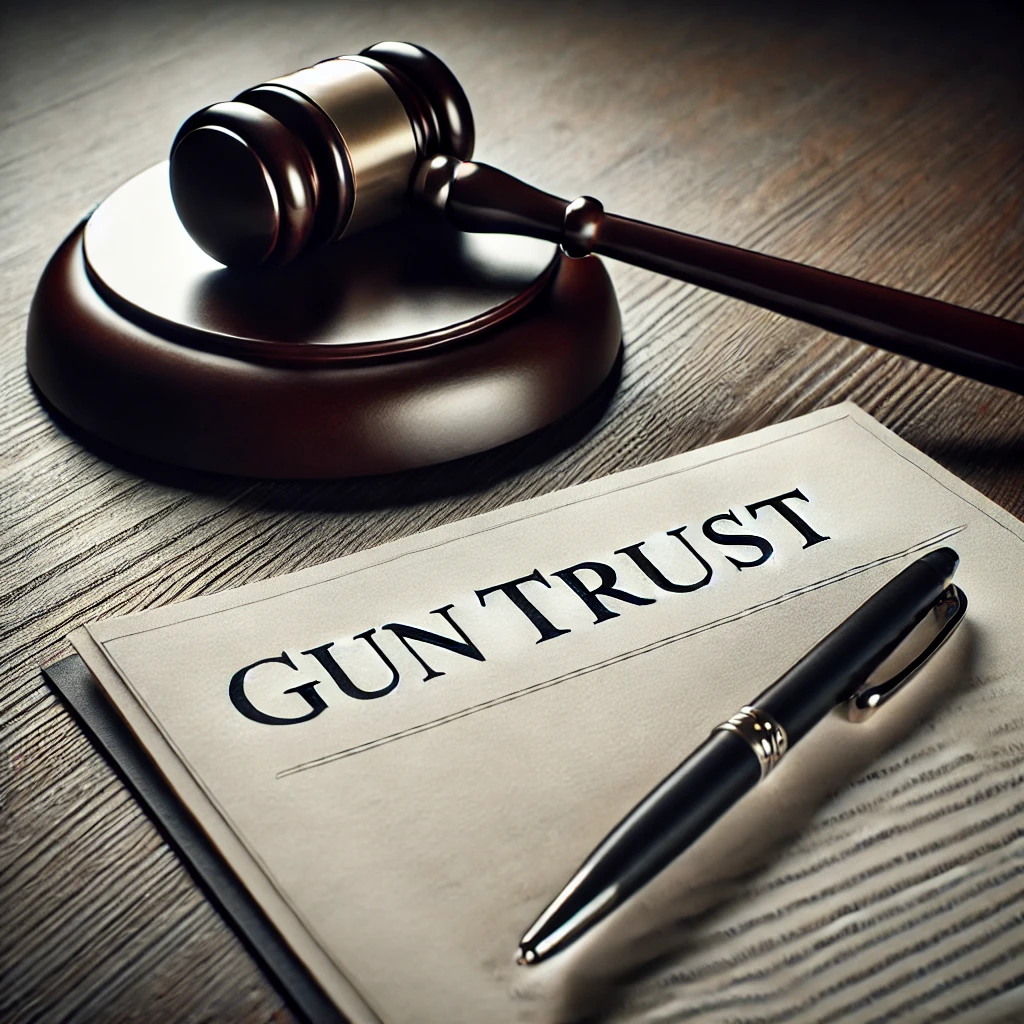Protect Your Firearms Legacy with a Gun Trust
Legal protection for your firearms collection that ensures compliance and peace of mind
What Is A Gun Trust?
As a responsible firearm owner, you already have plans for safe storage, safe transport, safe carry, and safe use. Some day you are going to reach a day when you aren't in charge of your own destiny anymore. Life's journey has the same ending for all of us. You need a plan for your firearms for that day.
There are two types of firearm legacy plans: the legal way (a gun trust), and the other way (which doesn't necessarily mean illegal, but you fill in the blanks). We help folks design and implement plans the legal way.
There are two types of firearm legacy plans: the legal way (a gun trust), and the other way (which doesn't necessarily mean illegal, but you fill in the blanks). We help folks design and implement plans the legal way.

Key Benefits of a Gun Trust
Legal Compliance
Ensure your firearms are managed in compliance with federal and state laws
Streamlined Process for NFA Items
Reduce redundant paperwork and legal requirements for items regulated by the National Firearms Act
Privacy
Enhance privacy in firearm ownership
What a Gun Trust Can Do
- Legally own and manage NFA firearms (silencers, short-barreled rifles, etc.)
- Allow multiple trustees to possess and use trust-owned firearms
- Simplify the gift of firearms to beneficiaries
- Keep your firearms collection private (unlike probate)
- Potentially reduce liability for accidental misuse
- Provide clear instructions for handling your firearms after you're gone
- Make it easier to transport NFA items across state lines
- Help prevent "accidental felonies"
What a Gun Trust Cannot Do
- Make illegal firearms suddenly legal (I used to make a joke about California folks here... but I live in Colorado)
- Bypass background checks or waiting periods
- Allow prohibited persons to possess firearms
- Guarantee you'll hit the side of a barn (that's still on you)
- Automatically register firearms across state lines (for folks who must do so)
- Replace proper firearms training and safety practices
- Make you immune to firearms laws and regulations
- Turn you into John Wick (but it might make you feel a bit cooler)
Our Gun Trust Process
Step 1
Before we meet for the first time, we need you to do a little homework assignment. This is a short, very general, survey about your needs, worries, and classes of firearms.
Step 2
We start with a free, confidential, no-obligation conversation. This is a chance for you to educate yourself on your options and ask lots of questions.
Step 3
To make sure we can help you do all the transfers necessary to manage your trust correctly, we need an inventory of your firearms, complete with serial numbers. We like to have pics too. We also will confirm all the key details of your specific trust in a confirmation document.
Step 4
After drafting the documents for your trust, we'll get together to sign everything and train you on how to use your gun trust.
Step 5
We'll initially fund your trust with $10 to make it a legally binding trust. The next step is the one where we see the most mistakes. You need to actually transfer your firearms into the trusts ownership. If you're a gun owner, you know what a transfer is. If you're new to this stuff, we'll explain it to you.
Step 6
While it is a part of a comprehensive estate plan, your gun trust is a tool for you to use while you are alive. Gun laws change, seemingly every other week these days. That seems a little often to talk with your attorney, so we make sure to do a check-in annually to keep you up to date and strategize on any changes you need to make.
Step 7
Everyone's gotta go some day. Your gun trust will include instructions on what to do with your firearms when your day comes. If you have children or grandchildren, your family may not have to do anything. If you want the firearms to be turned into cash, someone will have to do that work.
Frequently Asked Questions
Navigate the legal minefield with fellow enthusiasts who get it
Protect your collection and your rights - without the stuffy lawyer act.